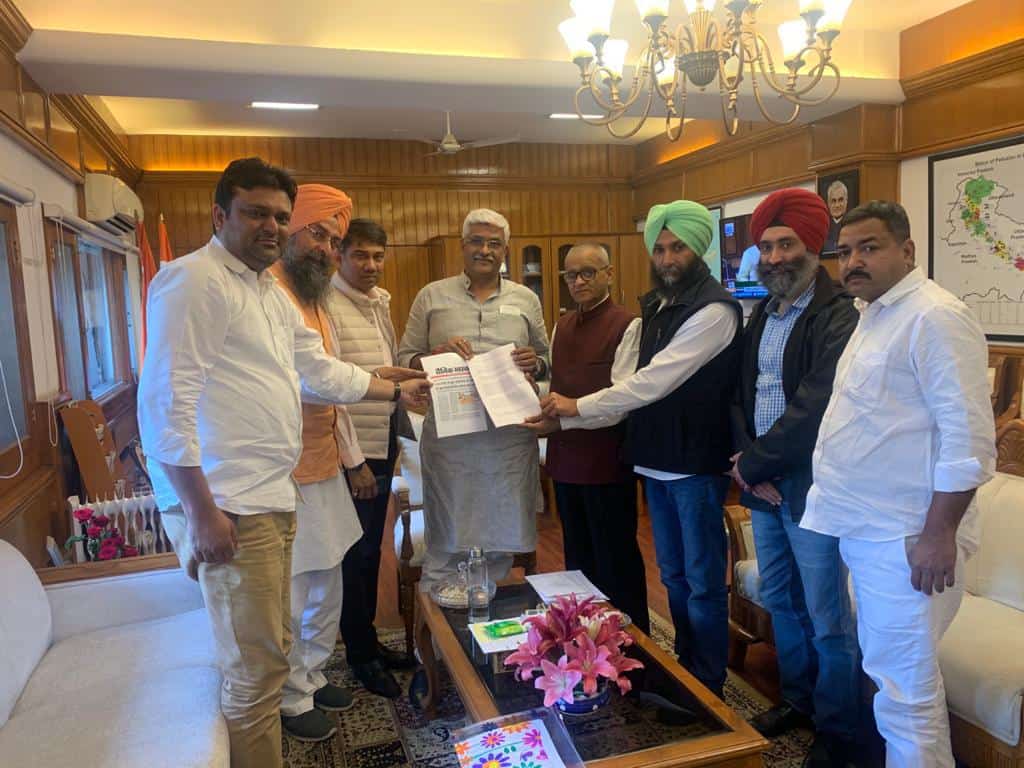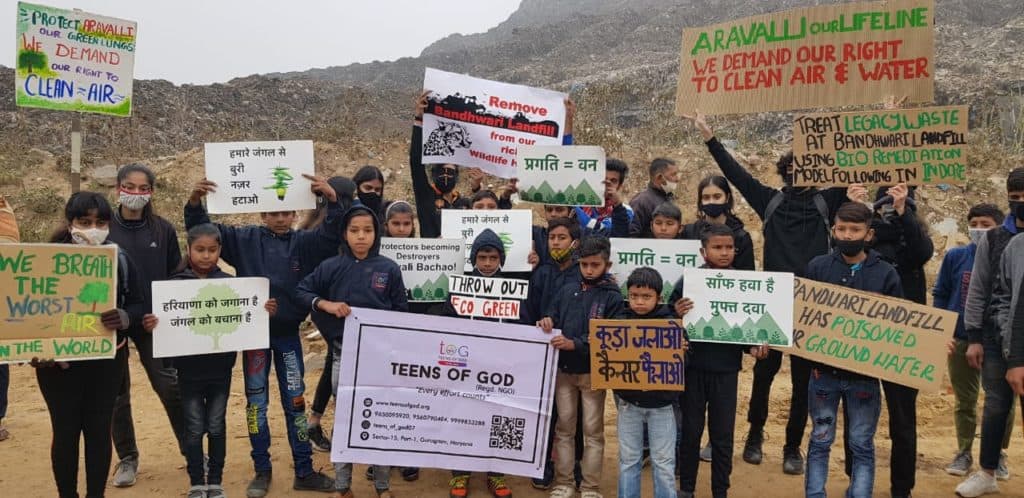On February 10th, 2021, Citizen Matters organised an online round-table discussion on ‘Climate Crisis and Environmental Sustainability: Lessons for Tier 2 cities’. The discussion was a logical extension of a series published on Citizen Matters, and supported by Climate Trends, that looked at climate change and environmental sustainability in cities like Bhubaneshwar, Chandigarh, Shimla, Rishikesh and Varanasi.
The intense session saw a deep exploration of the various sustainability challenges before India’s Tier 2 cities and towns, and the systemic gaps underlying such manifestations.
Read more: What’s causing climate risks in our smaller cities and towns?
The primary objective of this discussion, however, was to come up with solutions to create engagement in smaller towns and cities, and the panelists who came from diverse domains and had rich experience weighed in on how various stakeholders could contribute to the mitigation of climate risks.
Speakers (in alphabetical order)
Ankit Bhardwaj: Ankit Bhardwaj is a PhD Student in Sociology at New York University. He was previously a Senior Research Associate at the Initiative on Climate, Energy, and Environment at the Centre for Policy Research, New Delhi. His work investigates the transformations and politics of climate change in India’s smaller cities.
Anoop Nautiyal: Dr Anoop Nautiyal is the founder of Dehradun based Social Development for Communities (SDC) Foundation, working on the challenges of environmental conservation, urban governance and citizen engagement in Uttarakhand.
Anvita Pandey: Dr. Anvita Pandey is the Coordinator and Scientist at Centre for Ecology Development and Research. She is a Forest and Water specialist with over 8 years of experience in forest ecology, management, water issues and its conservation with respect to recharge techniques in the Himalaya
Ashwani Sharma: Dr Ashwani Sharma is a senior Shimla-based journalist and columnist for the Indian Express and other leading publications.
Jagadananda: Jagadananda was former State Information Commissioner, Odisha and a member of the State Planning Board of Odisha. Presently, he is a Member of the Standing Committee (CSOs) at the NITI Aayog the highest think-tank body at the National level on Institutionalizing Partnership between Civil Society and the Government.
Jagadananda also leads the Centre for Youth and Social Development (CYSD), an autonomous development organization working with the tribal and rural poor in Odisha.
Jaskirat Singh: Jaskirat Singh is a Ludhiana-based environmental activist and founder of Naroa Punjab Manch, a citizens group working on cleaning up the Buddha Nullah.
Mridula Ramesh: Mridula Ramesh is the founder of the Sundaram Climate Institute, which focuses on waste and water solutions and education. She is an active angel investor in cleantech startups, with a portfolio of over a dozen startups. She is also a regular columnist for Firstpost on Climate Change and has written extensively for the Hindu and Down to Earth.
Raj Machhan: Raj Machhan is a senior independent journalist and and online media specialist based in Chandigarh, formerly with The Indian Express.
Rishabh Shrivastava: Rishabh Shrivastava is an Independent Researcher, writer and communications professional.
Rutul Joshi: Rutul Joshi is an architect-urban planner teaching at CEPT University. His doctoral research focused on conceptualising the poverty-mobility linkages for Indian cities. Since then, he has continued to work on issues related to sustainable mobility, transport equity and new approaches to reform urban planning in India.
Swati Sambyal: Swati Sambyal has worked in India as well as across the Global South with city functionaries and governments on development issues concerning integrated waste and resource management. She has been a part of the National Geographic forum on circular economy.
Tarun Sharma: Tarun Sharma is the cofounder of Nagrika, a social enterprise which is creating knowledge to enable citizens, with a focus on small cities.
V Vinoj: Dr V Vinoj is Assistant Professor at the School of Earth, Ocean and Climate Sciences, IIT Bhubaneswar.
Small steps forward
The importance of citizen engagement in finding solutions ran like a leitmotif throughout the discussion.
Anvita Pandey highlighted recent efforts where local residents in the water starved Himalayan towns were asked to record data, such as the amount of water they were tapping into daily, the number of dry days, the number of days with snowfall, etc. Thus, they have now resorted to citizen science and are trying to bridge the data gaps.
Read more: What lies behind the deepening water crisis in Himalayan towns?
At a city level, and speaking of citizen engagement in particular, Anoop Nautiyal raised two important points — one, that at a policy level, the government mostly engages with citizens as photo-ops or for competitions, media coverage etc. The second was that such engagement, too, would be selective. There is a scant chance of individuals or groups being consulted if they are perceived as “troublemakers” — those who would question or oppose policies.
On the brighter side, Raj Macchan talked about the inspiring story of Buddha Nalla. “I think, in Punjab, people are proactive when it comes to taking steps. In Punjab, we have the Naroa Punjab Manch, which helped in energizing people to see themselves as part of the solution. I think that has really made an effect on how the Buddha nalla pollution issue in Ludhiana has been tackled.”

To this, Jaskirat Singh highlighted the pressure that civil society actions can put on the government. The NGT did a good job, he felt, but there was one case filed by Jacob Koshy that raised the issue of contamination and pollution across rivers. That is what acted as a major trigger behind the action plans concerning the rivers in the country. “The government was forced to think about the pollution levels in rivers. I think we’ve just started,” said the panelist.
There were many examples of success stories — from Ludhiana to Mussoorie, but Anoop reminded us of the dangers of the “episodic” nature of such positive instances. “There are a lot of positive, inspiring stories but the problem is, they are still not institutionalised,” he said.
Similarly, talking about the role of media, journalist Ashwani Sharma felt that media has played a very important role in bringing focus to real issues in the Himalayan region. In Shimla, for example, media, social organisations and proactive environmentalists played a big role in highlighting the potential impact of the law regularising illegal construction. Thanks to civil society and media pressure, the High Court struck down that Act; even foreign media took note.
What more can be done?
Swati Sambyal pointed out that it is imperative for states to have their own decentralised policies and push cities to adopt those, but also giving them the freedom to modify those as per their own context. India is a vast country; across its regions, the situations vary, contexts vary and therefore solutions must be local.
According to Ankit Bhardwaj, figuring out ways to build a local political-economy that pushes for more action and links itself with bureaucracy, is essential for issues like making climate change stand out as local issues. Bureaucracies, he felt, are generally high capacity, but only for certain things and especially those that they are incentivized to understand. Social movements that incentivise the government to consider climate issues can lead to action within governments aimed at capacity-building.
“The good news is that there are a lot of ongoing experiments. So if you travel to smart cities in India, you’ll find e-rickshaws operating, solar panels on rooftops. In Bilaspur, I found a company that was charging e-rickshaws at a rate lower than LPG, using solar panels. In Davanagere, there is a project where a local puffed rice manufacturing district has reduced its carbon footprint by installing solar infra. So these are new opportunities, where these technologies are getting cheaper, and people are adopting them. I think the goal should be to figure out ways in which we can link climate goals with the goals of the local political economy and local democracy,” Ankit said.
Finally, while the climate crisis or sustainability may never be a top electoral issue, it will always be something that affects day to day lives, through the impact on water, electricity, housing etc and therefore, Ankit suggests figuring out ways in which people’s everyday lives are being linked and formed by climate change, and then parties will have to respond to it in some way or the other. “I think citizen groups will be well placed in these various cities, hopefully, to make that linkage for them,” he said.

Jagananda, former State Information Commissioner, Odisha said that when it comes to what civil society can do, citizen report cards can be a wonderful mirror before the institutions of our urban governance: to tell them what citizens like what they don’t like, what their dreams are, what are their frustrations are, what their anxieties are, what their concerns are. This can provide a framework for a conversation or a dialogue. Citizens have a responsibility to come together and demand accountability on various fronts, including municipal spending.
A call to action
Towards the end of the discussion, we asked participants to share that one call to action that they would give out to various stakeholders of the climate crisis.
Government
- (Urban local bodies to) Highlight changemakers doing significant work on climate change and environment
- Push Climate Science as a key area of research and knowledge; come up with more localised action plans
- Set up a common and open data platform with diverse datasets related to environment, for data-driven decision making
- Budget for public consultations in any project, and also for hiring competent people who can drive these consultations and work on consensus-building, impact assessment etc
- Identify, especially at the level of the city governments, the people who already have some native knowledge, some tribal knowledge, fundamental knowledge about how cities function. Create an institutional role for them within the city governments, and then slowly expand that to build a larger group.
Citizens
- Be more involved in environmental issues
- Set up city-based social watch groups; convey the message that citizens are watching. Press for disclosure on funds utilisation by governments.
- Lobby for effective implementation of the 74th amendment
- Keep pressuring the government and businesses to keep social equity in mind
- Make issues like sustainability a part of election decision making. Show awareness of the linkage between climate goals and the goals of local political economy and local democracy.
- Prioritise collaboration and leveraging existing knowledge
Media
- Focus on critical environment topics, with issue-centric reporting, presenting clear narratives
Also read: